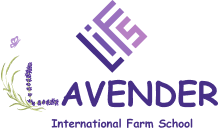FAQ
Montessori Early Childhood and above classes may have 20–30 3-year-olds. Infant and toddler classes have 10–15 kids. It often sets the teacher-to-child ratio for this youngest age group.
The Montessori program emphasizes independence and self-sufficiency. Independent, self-directed children gain self-confidence and pride when they succeed. Young children are encouraged to care for themselves and their classroom in the Montessori classroom.
Students with ADHD, learning disabilities, and autism spectrum disorders can continue through the curriculum at their own pace without feeling pressure to “catch up.”
Montessori schools teach basic skills like traditional schools and have a solid academic program. Math, science, history, geography, and language are taught in an integrated way. This curriculum shows how everything is connected. It lets students immerse themselves in a topic and explore their interests.
Each child is challenged adequately in each curricular area to build skills and competencies and allow them to explore their interests. The Montessori teacher monitors each child and gives materials and activities based on previous learning. This careful coaching helps each child conquer the obstacle and prevents him from moving on too soon; this sometimes causes children to “fall behind.”
Montessori respected children’s play—their struggle to manage their bodies and environment—by calling all classroom activities “work.” Montessori pupils work hard because they love learning. Kids like and focus on these activities to discover independently!
Montessori educators receive a broad base of knowledge that allows them to instruct across subject areas. Yet, many educational institutions also opt to hire subject-matter experts in fields like the arts, languages, PE, and science.
Kids rarely get homework. Parents can expect homework as kids become older. This requires pupils to work alone for 20–40 minutes. Parents may ask 6- to 8-year-olds to read or do a school project. Homework obligation increases as pupils progress through Montessori.
Montessori pupils earn grades less. Grades and other external rewards don’t affect a child’s efforts or successes. Montessori encourages children’s intrinsic enthusiasm to study.
Most Montessori teachers don’t give grades, but they regularly monitor student growth and readiness for new topics. Most schools offer family conferences a few times a year so parents can examine their child’s work and hear the teacher’s assessment—and possibly their child’s self-assessment.
Your child will likely do well socially and academically if she moves on from a Montessori setting to another one. Students educated in a Montessori environment tend to be confident, independent learners accustomed to working cooperatively within a classroom community.
